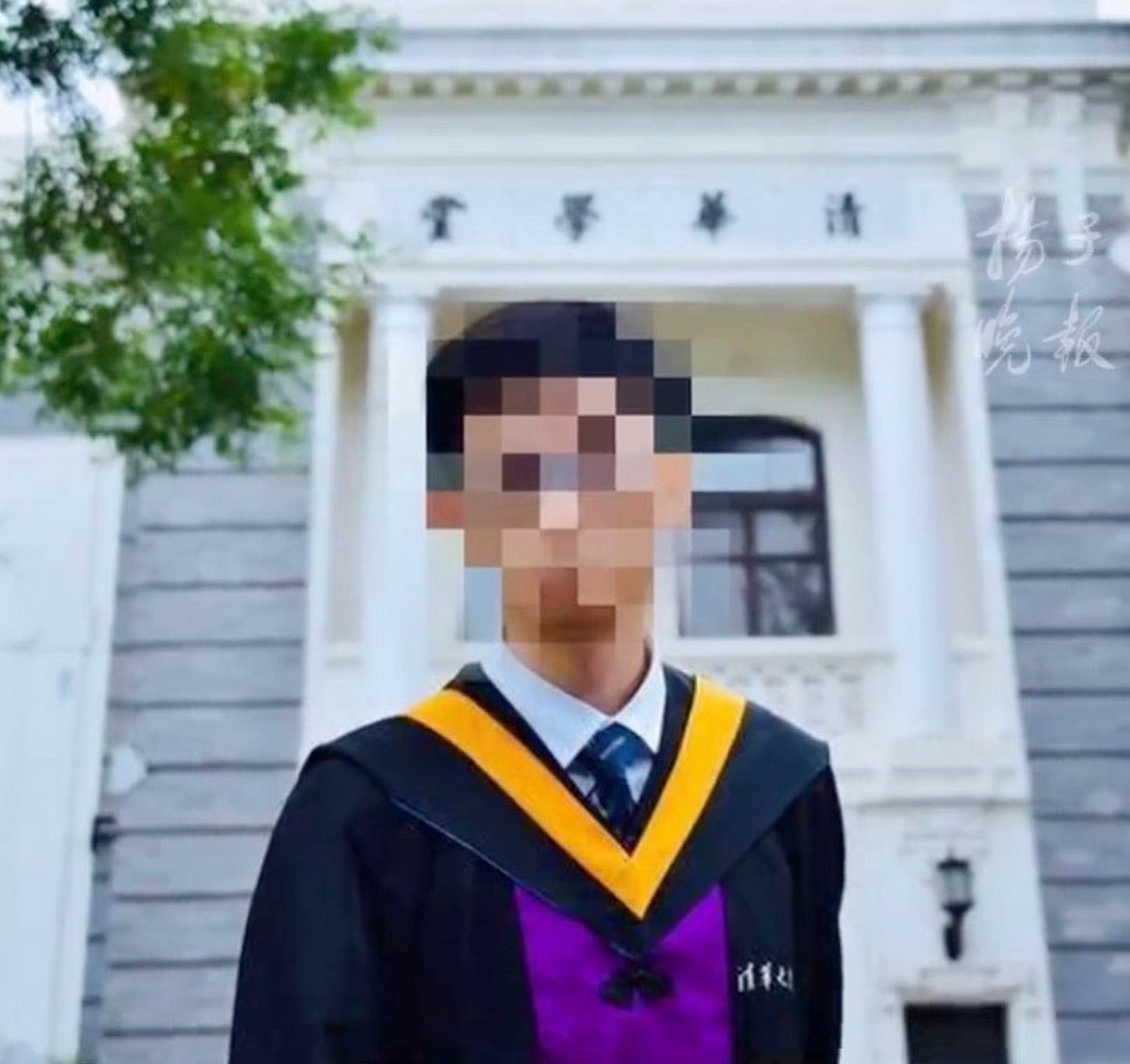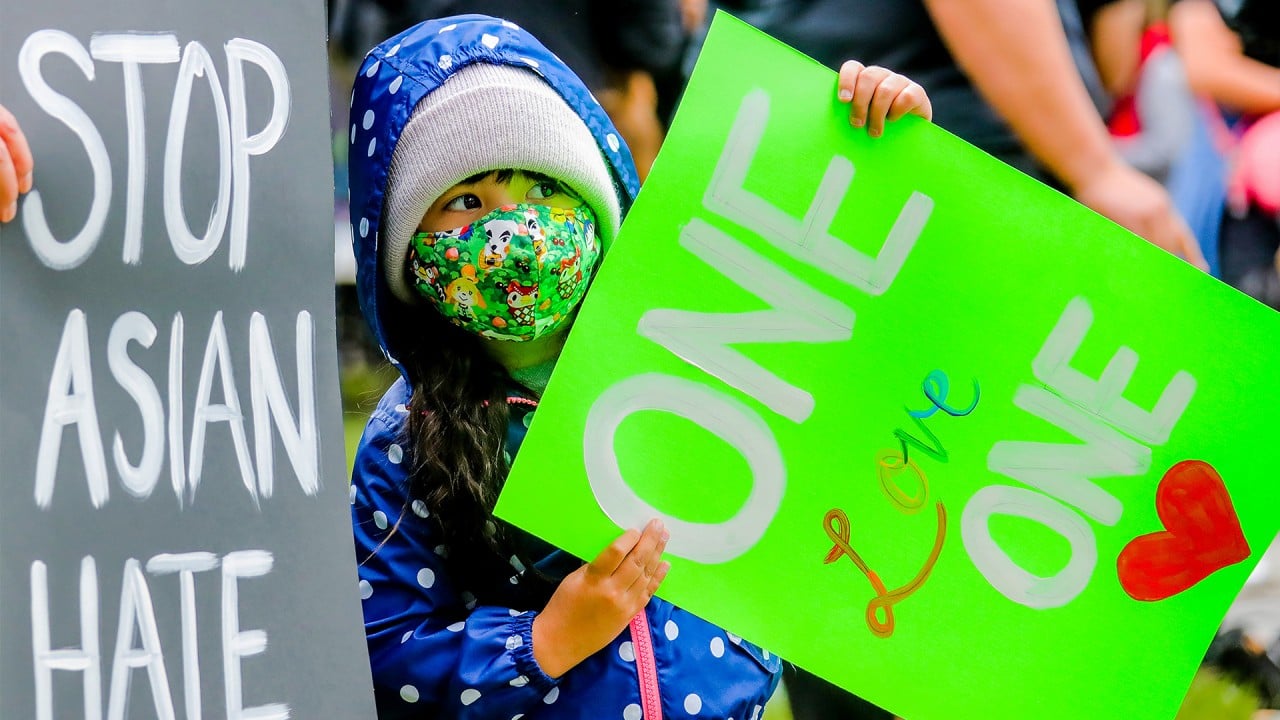“If only there wasn’t such a strong stigma, and given early intervention, a lot of these tragedies could be avoided,” said Elaine Peng, president of the Mental Health Association for Chinese Communities, based in Castro Valley, California, which is among the few groups in Silicon Valley or elsewhere catering to troubled Cantonese- and Mandarin-speakers. “It’s too bad that nobody noticed the seriousness of his problem so he could get help early on.”
Many details and the motivation behind Chen’s alleged murder of Yu remain unknown and may only emerge at trial later this year. Nor is it known if Chen will cite mental health in his defence. But experts say problems the couple appeared to face fit patterns commonly seen in their counselling work.
Chinese and other Asian engineers working in the US often have stellar academic backgrounds before landing a job at Google, Meta or other leading US firms. Chen, from Sichuan province, and Yu, from Jilin province, were top students at their high schools before attending Beijing’s Tsinghua University and the University of California, San Diego.
“Their perfect education background and work experience had allowed them to live an enviable life,” Global Times, a nationalist paper affiliated with People’s Daily, said in a report about the murder.
After the euphoria subsides, however, many immigrants with stressful careers are confronted with the first bout of hardship they have faced. Coddled by their parents, touted as prodigies by teachers, their personalities may be brittle and ill-equipped to deal with setbacks.
“They are hit with nostalgia for their home country and suddenly face a huge gap between expectations and reality. That’s when they start having problems,” said Peng, who said a sizeable portion of her group’s clients are in the IT sector.
“This generation of kids in China has grown up with extreme pressure, elites or not, in an environment of fierce competition where they can’t catch their breath. It’s very poisonous.”
Fatal shooting by Chinese doctoral student stirs Asian-American anxiety
Fatal shooting by Chinese doctoral student stirs Asian-American anxiety
News of the January 16 murder in Santa Clara sent shock waves through Asian and Asian-American communities worldwide. For Lily Yang – a Tsinghua graduate who also married someone she met in school, then worked for 27 years in the high-pressure tech industry – the parallels were unnerving.
“I went to their same school. They were sweethearts, came to the US a few months apart, very relatable – up until the last part,” said Yang, a native of Guangxi Zhuang autonomous region who recently retired from Intel.
“It was just shocking, unthinkable, how does this happen? From what I read, it was brewing for a while. But it’s just so tragic.”
At the heart of domestic violence cases is an urge to exert control over a partner, compounded by jealousy, discomfort over a partner’s success or their calls for divorce. Men, often young, with low self-esteem who endured childhood abuse, are the main, although not exclusive, perpetrators of violence, according to the US National Institutes of Health.
Domestic violence is often more pronounced among immigrants who may be socially and culturally isolated, experts said, worsening the power imbalance and making it harder for the victim to leave or seek help given language barriers, ignorance or institutional racism.

“The stats show there are a larger number of immigrants being killed in the United States that has to do with the number of barriers to being able to physically separate,” said Grace Huang, policy director at the Asian Pacific Institute on Gender-Based Violence.
“You may have very, very controlling behaviour and it doesn’t actually show up as physical violence. But when somebody’s decided ‘I’m done with this’, the ultimate act of control is to kill them. And that is actually not that uncommon.”
Some immigrants from Asia have a different take on domestic abuse, particularly cultures that embraced Confucianism, which traditionally placed wives below husbands in the hierarchy, detailed in the “Three Obediences and Four Virtues” Confucian text calling for women to obey their father, husband and son and remain “modest and moral”.
While Asia has made progress in confronting spousal violence – with passage in China of the domestic violence law of 2015, following its hosting of the 1995 UN World Conference on Women – Confucian traditions often remain strong, particularly in Japan, China, Vietnam, Mongolia and Korea.
As the news of Yu’s killing spread, Santa Clara County District Attorney Jeff Rosen urged the public to work with law enforcement to stop domestic violence. But spousal abuse is often treated more as a private matter than a crime in Asia, with counselling and social services frequently in short supply, particularly in rural areas, experts said.
Is under-reporting behind drop in anti-Asian hate attacks in California?
Is under-reporting behind drop in anti-Asian hate attacks in California?
China has 0.036 clinical psychologists per 10,000 citizens, compared with 1.8 in Britain and six in the United States, according to a study by the National Institutes of Health, which found that 93.6 per cent of Chinese patients and caregivers misunderstand mental illnesses, preventing them from receiving appropriate care.
“In China, if someone reported you for domestic violence, often all you have to do is say this is a ‘family matter’. So then the husband or whoever is doing the violence says, ‘I’ll try harder’ – that will be it,” said Peng. “Little do they know, there is often zero tolerance in US domestic violence cases.”
While underscoring that violence is never justified, those trying to tease out the factors behind Yu’s murder point to some of the pressures facing immigrant tech workers beholden to companies for H-1B skilled worker visas.
Job insecurity has become the norm, with some 230,000 tech lay-offs since January 2023, and there is growing fear that generative artificial intelligence will replace humans as the industry is increasingly blamed for polarising society.
The 2023 Mental Health in Tech Report by healthcare provider APN found that 77 per cent of tech workers blamed lay-offs for greater mental stress, while management firm AppDynamics’s research cited 57 per cent of tech workers feeling burned out.

Although Google, Amazon and other tech giants offer counselling and mental health programmes, employees, particularly those foreign-born, are often hesitant to use them.
Over 30 per cent of stressed tech workers avoid seeking treatment, afraid colleagues or family will judge them or they will lose their jobs, according to research firm Censuswide.
Asian-Americans are the fastest growing ethnic group in the US, led by Chinese, accounting for some 24 million people, or nearly 8 per cent of the US population. But they are also grappling with a lot, particularly males who may face great cultural pressure to excel, hide their feelings and avoid “looking weak”, experts said.
Given family dynamics, these attitudes often spill over into the next, American-born, generation, said Christina Wong, a public relations consultant and founder of Fruit + Flower Company, born in southern California to a first-generation Cantonese father who was physically and verbally abusive.
“My mum stands up for herself more now, but she still doesn’t leave,” Wong said. Traditionally, “male babies are revered and treated as very, very precious objects, spoiled. My father was the same, basically spoiled man-children is what happens and they don’t think there’s anything wrong with them.”
Asian-Americans confront mental health crisis amid rise in attacks
Asian-Americans confront mental health crisis amid rise in attacks
“That immigrant experience is so complex,” she said, citing the competition in Asia that has emerged from historical poverty. “Even the definition of success in Asian cultures and within families is very challenging and it pushes us to a state of mental stress, but you can’t show it.”
Chen faces life imprisonment without parole if convicted. Prosecutors also alleged that Chen targeted a vulnerable victim and used “great violence” with a “high degree of cruelty, viciousness or callousness”. His next hearing is scheduled for mid-April.
Chen appeared at a hearing last month wearing a white helmet suggesting, Peng said, that he may be suicidal. He has not entered a plea and his lawyer declined to say whether he underwent a psychiatric exam.
Peng became aware of the enormous need for Chinese-language counselling after her husband committed suicide and her daughter became depressed, prompting her to start the association in 2012.
Initially most of their “warm line” callers were Cantonese speakers. As the group gained more recognition and won public service awards after 2016, more Mandarin-speaking clients called in line with migration patterns, along with second-generation Chinese who prefer English.
The association’s biggest problem remains a lack of resources and volunteers. Language skills without sensitivity are problematic. “They may say ‘You want to commit suicide?’ at which point the client hangs up,” said Peng.
Domestic abuse, stressed tech workers, cultural alienation and denial are all in the mix, along with many first-generation “tiger” parents wondering why their stressed offspring talk to imaginary friends or refuse to eat.
“Often when our operators suggest to parents that their adult children are struggling with mental health issues, the parent would says ‘No, no, I just want a quick solution’,” said Peng. “There’s a real lack of understanding, and worrying too much about how people see them.”
Asian parents’ idea of success just adds to mental health stresses
Asian parents’ idea of success just adds to mental health stresses
Yang, the Intel alumnus, initially approached the non-profit National Alliance on Mental Illness after her daughters struggled with stress in college, only to discover the meetings she attended included no Asians.
“Wow, what happened?” she recalls thinking. “Am I the only unlucky one, others don’t get sick?” Eventually she met Peng and later took advantage of an Intel programme offering financial incentives to retirees who assist non-profit groups.
After the pandemic, Yang brought her management expertise to the warm line, helping recruit more operators, building a training and monitoring structure and phone network for remote operators.
The group has been slow to publicise the service, wary of being overwhelmed, but has received calls from across the US and even China.
“Elaine is very good, but she’s just one person,” said Yang.
Since the Yu killing, they have received more calls, and a silver lining may be growing awareness about domestic violence, stress and counselling. “Such a tragic event can hopefully open people’s eyes,” she said.


